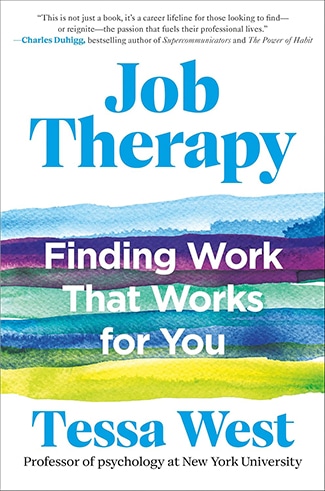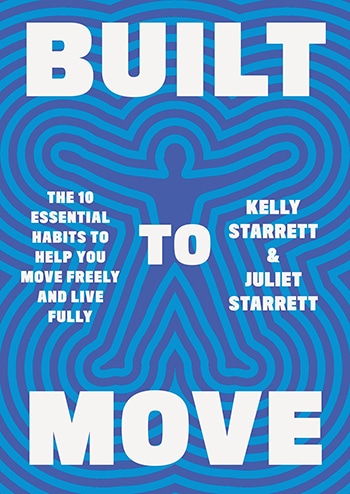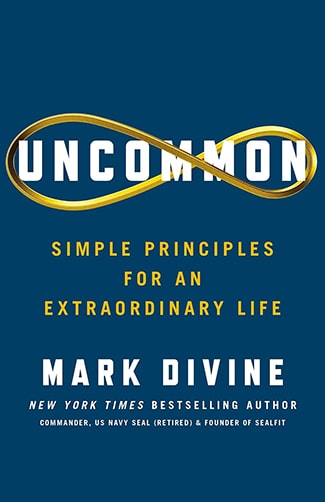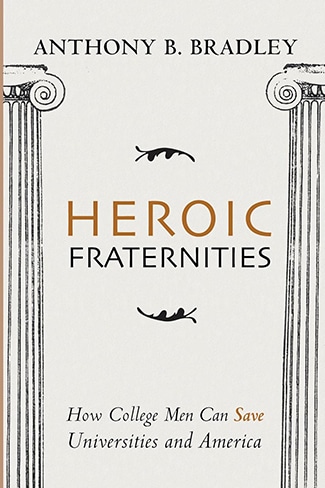Podcast Summary
Thinking Long-Term: The Key to Meaningful Action: Developing a 100-year plan helps us make intentional choices that align with our long-term aspirations, prioritize what truly matters, and create a purposeful and fulfilling life.
Developing a long-term plan, like a 100-year plan, can help individuals take meaningful action towards their goals. Often, we make decisions based on our immediate desires and temporary situations, which can lead us to a place we don't want to be in the long run. By thinking about our actions in the context of a larger timeframe, such as a 100-year plan, we can make more intentional choices that align with our long-term aspirations. This approach allows us to prioritize our time and focus on what truly matters to us, whether it's personal or professional goals. By being mindful of our long-term plan, we can avoid getting caught up in short-sighted decisions and instead work towards creating a purposeful and fulfilling life.
Prioritizing Long-term Goals and Embracing Time: By envisioning our 100-year-old self and considering their advice, we can make decisions that align with our aspirations, prioritize meaningful time with loved ones, and value every moment.
We should prioritize our long-term goals and desires by envisioning our 100-year-old self and seeking their guidance. By considering what our future self would advise, we can make decisions that align with our aspirations and avoid regrets. This approach applies not only to professional pursuits but also to our family life, as we prioritize spending meaningful time with loved ones. Thinking in terms of minutes, rather than hours or days, is also crucial. It reminds us that time is finite and encourages us to make the most of every moment. By valuing our minutes and seeking guidance from our future self, we can lead a more fulfilling and purposeful life.
Thinking in Minutes: Maximizing Productivity and Progress: Utilize even small increments of time by creating a list of tasks that can be accomplished in 10 minutes, helping maximize productivity and make significant progress in our lives.
Every minute counts and can be valuable. When we don't think in minutes, we tend to waste precious time and follow the path of least resistance, often resorting to mindlessly scrolling through our phones. However, successful individuals understand the importance of utilizing even small increments of time. Creating a list of tasks that can be accomplished in 10 minutes helps maximize productivity during those moments in between larger activities. It's about recognizing that every minute can contribute to our goals and overall satisfaction. We shouldn't wait for large chunks of time or ideal conditions to pursue our passions or complete necessary tasks. By thinking in minutes and making the most of them, we can make significant progress in our lives.
Time: The Great Equalizer: By recognizing the value of each minute and making intentional decisions about how we spend our time, we can achieve greater productivity and fulfillment in our lives.
Time is the great equalizer among all individuals. Regardless of our status or resources, we all have the same number of minutes in a day. By recognizing the value of each minute, we can make strategic decisions that lead to greater productivity and fulfillment. Instead of succumbing to the path of least resistance, we should actively choose how to spend our time. This means avoiding mindless activities like scrolling through social media and instead utilizing spare minutes for meaningful tasks like reading or pursuing personal goals. Making intentional decisions about how we allocate our time can have a profound impact on our lives, enabling us to make progress towards our dreams and create a more fulfilling existence.
Maximizing Time for a Fulfilling Life: By consciously reducing time spent on activities like commuting and prioritizing convenience, individuals can save valuable minutes that can be used for more important pursuits, leading to a more fulfilling and balanced lifestyle.
Maximizing your time can lead to significant gains in productivity and quality of life. By consciously reducing the time it takes to commute or engage in activities, such as going to the gym, individuals can save valuable minutes that accumulate throughout the day. These saved minutes can be used for more important pursuits, whether it's spending time with family, pursuing hobbies, or focusing on work. It's worth prioritizing convenience and proximity over material possessions or unnecessary luxuries, as the time saved can have a profound impact on overall happiness and well-being. The COVID-19 pandemic has also highlighted alternative ways to utilize time, such as exercising at home and finding creative solutions that incorporate multiple activities simultaneously. Ultimately, recognizing the value of time and implementing strategies to save it can lead to a more fulfilling and balanced lifestyle.
Prioritizing and Streamlining for a More Fulfilling Life: By evaluating our activities and finding ways to streamline or eliminate unnecessary tasks, we can create more time for what brings us joy and fulfillment.
We should prioritize our time and focus on activities that bring us joy and fulfillment. Instead of wasting time on routine tasks and fruitless pastimes, we should find ways to streamline or eliminate them. For example, outsourcing tasks like lawn mowing or finding a go-to grocery store can free up valuable time for more important pursuits. It's essential to evaluate the return on investment for the activities we engage in and make conscious choices that maximize our time. By being efficient and effective in our daily routines, such as combining tasks like flossing in the shower, we can create more time for the things that truly matter to us, whether it's writing a book, spending time with loved ones, or pursuing our passions.
Connecting tasks and prioritizing time for increased productivity: By attaching tasks to daily routines and valuing small increments of time, one can increase efficiency and focus on what truly matters in life.
Finding ways to connect tasks and prioritize your time can help you accomplish more. When Matthew Dicks discovered the importance of flossing, he decided to attach it to something he did every day, showering. By combining these two activities, he never forgot to floss and now has excellent dental appointments. Similarly, thinking about life in minutes allows you to see the value in small increments of time. Just like the eagle and the mouse, you can embody both qualities of paying attention to detail and understanding what is truly important. By focusing on the essentials and finding efficient ways to complete daily tasks, you can free up more time for the things that matter most in your life.
Cultivating Intentional Incuriosity for Creative Success: Prioritize meaningful tasks, avoid irrelevant distractions, and embrace a "don't do something and see what happens" approach to optimize time and effort.
Creative people, while needing to pay attention to details, must also learn to get above the fray and not get caught up in irrelevant or fruitless projects. Creative individuals should practice intentional incuriosity by deliberately choosing not to engage in things that don't matter to them. It's important to prioritize what is meaningful and will yield results, rather than wasting time on insignificant matters. Ultimately, curiosity should be directed towards things that will make you happy and lead to meaningful outcomes. Additionally, adopting a "don't do something and see what happens" policy can be beneficial in identifying tasks or requirements that are unnecessary or overlooked, allowing for a more efficient use of time and effort.
Breaking Rules for Positive Outcomes: Embrace imperfection and break unnecessary rules to discover newfound freedom and achieve growth and success. Don't let fear hinder progress; prioritize taking the first step towards your goals.
Breaking rules and challenging norms can often lead to positive outcomes and newfound freedom. By questioning and experimenting with unnecessary conventions, such as filling out every question on a form or participating in unproductive meetings, we can discover that many of these rules and obligations are not as crucial as they seem. It is important to remember that most people are not paying as much attention to our actions as we believe, and the fear of breaking rules hinders us from taking risks and making progress. Embracing imperfection and allowing ourselves to make mistakes is essential for growth and success. Instead of striving for perfection, we should prioritize taking the first step towards our goals, even if it means producing less-than-ideal results initially.
Embracing Imperfection: Overcoming the Fear of Making Mistakes: Don't be afraid to make mistakes in your creative process. People often focus on themselves and are not as critical of our work as we think they are.
Making mistakes and producing terrible things is a necessary part of the creative process. Many successful individuals started out by making ridiculous and stupid mistakes before finding their path to success. The story of Matthew Dicks' DJ career illustrates this point. Despite believing that he ruined a wedding with his DJ skills, the bride had no recollection of any mistake and thought everything went well. This reflects the spotlight effect, where we assume others are constantly judging us when in reality, people are focused on themselves. Understanding that people are not paying as much attention to us as we think allows us to embrace imperfection and fearlessly put our work out into the world.
Harnessing the Power of Compliments for Positivity: Recording and saving compliments can counteract negative comments, boosting positivity and self-confidence. Expressing appreciation and leaving positive reviews spreads kindness and counters negativity.
Recording and saving compliments is a powerful tool to counteract the impact of negative comments and boost positivity in our lives. Research shows that negative comments linger longer in our minds than positive ones, with a ratio of about six to one. As creators or anyone putting something out into the world, we often face criticism and negativity. By saving every positive email, text, or message, we can create a collection of compliments that we can revisit during times of self-doubt or when we need a boost of positivity. It's also important to actively express our appreciation and leave detailed positive reviews for businesses or individuals, as this not only spreads kindness but also helps counterbalance the negativity that may come their way.
Letting Go of the Little Things: Don't sweat the small stuff. Focus on what truly matters and avoid wasting time and energy on insignificant matters that have no significant impact on your life.
We shouldn't make every little thing in our lives a big deal. Sometimes, we have a tendency to blow small problems or insignificant details out of proportion, allowing them to consume our time and energy. In his work as a school teacher, Matthew Dicks talks about how he chooses not to get caught up in the battle over class schedules. He realizes that the specific schedule he receives doesn't affect his effectiveness or overall experience as a teacher. Similarly, he points out the example of tableside guacamole, where the unnecessary spectacle of its preparation disrupts conversations and adds unnecessary complexity to a simple dining experience. We should learn to recognize when something is truly meaningful and deserving of our attention, and not allow ourselves to turn insignificant things into big issues.
Simplifying the Unnecessary and the Importance of Kindness: We should question the need to complicate ordinary things and strive to be kind, respectful, and easy to work with to build connections and leave a positive impression on others.
Sometimes we have a tendency to turn simple things into special things, even when it's unnecessary. Whether it's the obsession with facial hair or the coffee culture, we often make ordinary things overly complicated. We should question ourselves if it truly needs to be special. Moreover, the conversation highlighted the importance of not being an a-hole in the creative business, or in any aspect of life for that matter. Being kind, respectful, and easy to work with can make a significant difference in building connections and making a positive impression on others. Small gestures like saying good morning, showing gratitude, and being polite can have a profound impact on people's experiences and their perception of us.
The Power of Kindness, Respect, and Personal Growth: Treating others with kindness and respect, appreciating their help and advice, and focusing on personal growth can lead to positive relationships, better outcomes, and a purposeful life journey.
Treating others with kindness and decency can go a long way in life. By being respectful and considerate towards others, we create positive impressions and build meaningful relationships. Being successful should not be an excuse to become rude or indifferent towards others. Choosing to be kind and decent not only makes the journey easier for ourselves but also for those around us. Additionally, it is important to appreciate the help and advice offered by others. Instead of getting upset about timelines or level of detail, showing gratitude and understanding can lead to better outcomes. Lastly, taking time for self-reflection and focusing on personal growth can help navigate life's path more purposefully and prevent ending up in unexpected places.
The importance of self-reflection and pursuing our dreams for a fulfilling life: Take the time to reflect on your life, understand your current position, and actively pursue your dreams to invite novelty and excitement into your days.
We should take the time to reflect on our lives and make choices that align with our true desires. Often, people find themselves in careers or situations that were chosen for them by external forces, leading to a feeling of stagnation. By asking ourselves important questions like "Where am I?" and "Who am I?", we can gain a better understanding of our current positions and how we got there. Additionally, it is crucial to identify a point on the horizon, a dream or goal, that we can relentlessly pursue. While this may be challenging, it is often the right thing to do, leading to a more fulfilling and interesting life. So, let's make a habit of self-reflection and actively chase our dreams to invite novelty and excitement into our days.











